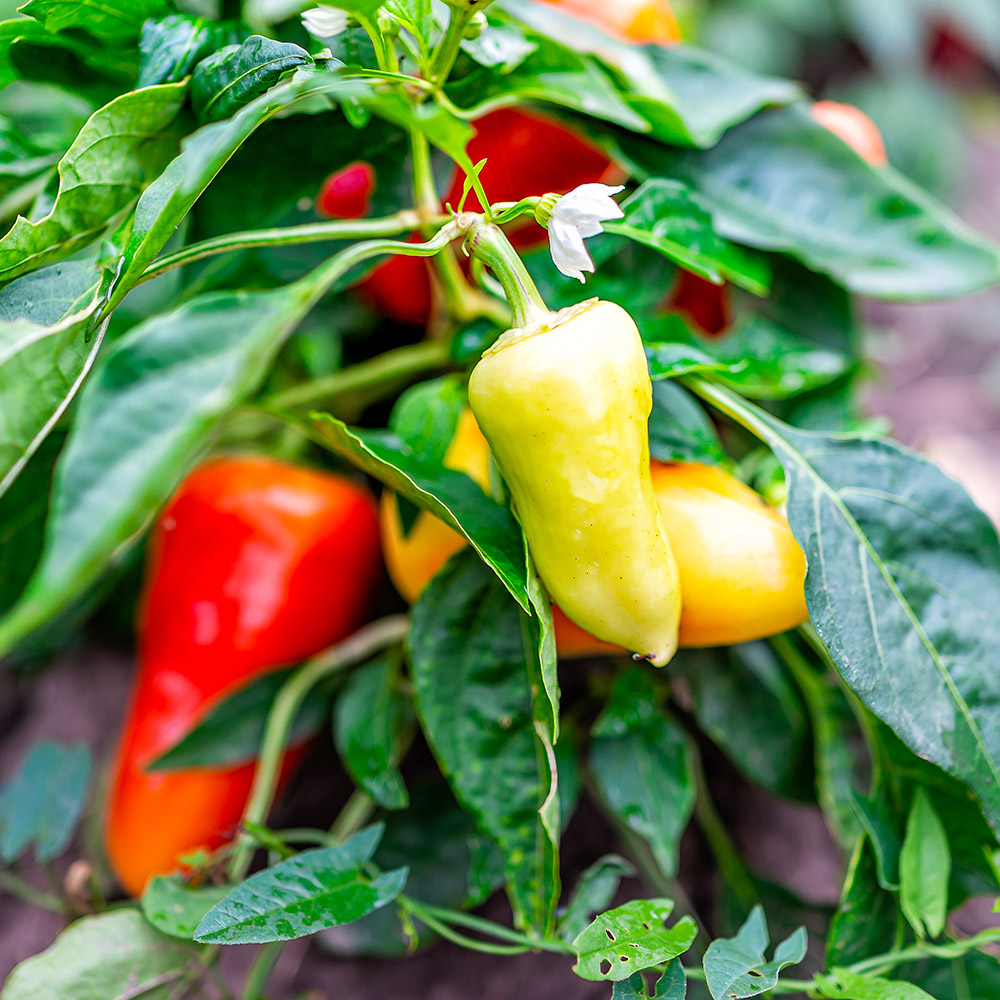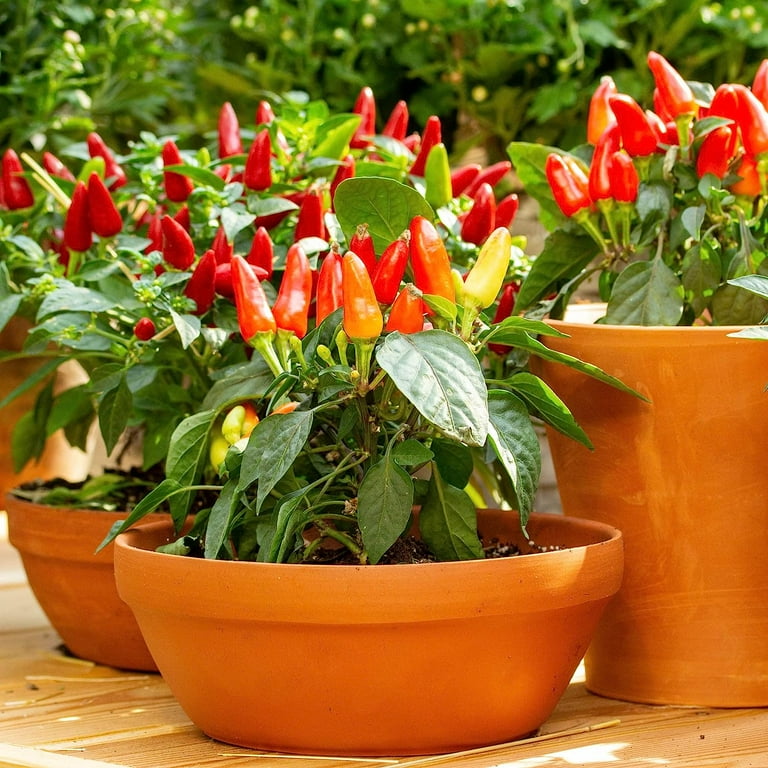Explore the Best Fertilizers for Peppers and Enhance Your Garden's Yield
Explore the Best Fertilizers for Peppers and Enhance Your Garden's Yield
Blog Article
Organic Vs. Synthetic Fertilizers: Which Is Best for Supporting Healthy And Balanced Pepper Plants?
In the realm of nurturing healthy and balanced pepper plants, the selection between organic and artificial plant foods stands as a crucial decision with far-reaching effects. While both choices objective to provide crucial nutrients to sustain plant growth, the nuances of their effect on the dirt, plant health and wellness, and the environment trigger a debate that echoes throughout the horticulture area. Recognizing the distinct benefits and prospective mistakes of each fertilizer type is critical for pepper farmers seeking to maximize their returns while preserving an eco-conscious and lasting approach.
Advantages of Organic Fertilizers
Organic plant foods offer an environmentally-friendly and sustainable strategy to nourishing pepper plants, giving important nutrients without making use of synthetic chemicals. These all-natural fertilizers are stemmed from organic sources such as compost, manure, bone dish, and seaweed, promoting dirt health and biodiversity. Unlike artificial plant foods, organic choices launch nutrients slowly, making certain a balanced and constant supply for pepper plants to flourish.
One substantial benefit of organic plant foods is their capacity to boost soil framework and water retention. By enhancing soil health and wellness, natural plant foods promote useful microbial task, which aids in nutrient uptake by pepper plants. Additionally, organic plant foods reduce the danger of chemical run-off, shielding water sources from contamination and securing the setting.
Furthermore, organic fertilizers add to lasting soil fertility by promoting the development of advantageous dirt microorganisms. These microorganisms aid damage down raw material, releasing nutrients in a form that is quickly obtainable to pepper plants. best fertilizers for peppers. By fostering a healthy dirt ecosystem, organic fertilizers support sustainable pepper cultivation methods that profit both plants and the setting
Downsides of Artificial Plant Foods
Artificial plant foods, in comparison to their organic counterparts, position different drawbacks when utilized to nourish pepper plants, impacting both plant health and ecological sustainability. One significant drawback of artificial plant foods is their propensity to leach nutrients from the soil quickly. This rapid leaching can bring about vitamins and mineral discrepancies in the soil, creating plants to endure from toxicities or shortages. In addition, synthetic fertilizers can harm valuable dirt organisms, such as earthworms and advantageous bacteria, interfering with the dirt community's balance.
Furthermore, the overuse of synthetic plant foods can add to water pollution. Excess plant foods not soaked up by plants can get rid of into water bodies, resulting in eutrophication, where algae blooms diminish oxygen levels in the water, damaging marine life. In addition, synthetic plant foods are commonly stemmed from non-renewable resources, such as nonrenewable fuel sources, contributing to carbon emissions and environmental destruction during their manufacturing.
Nutrient Absorption Comparison
Reliable nutrient absorption plays a critical role in the general health and growth of pepper plants. When comparing artificial and organic fertilizers in terms of nutrient absorption, organic plant foods have the benefit of giving a more balanced and slow-release source of nutrients (best fertilizers for peppers). Organic fertilizers have a variety of macro and micronutrients that are not only helpful for the plants yet additionally promote healthy soil microbial activity, which aids in nutrient uptake. On the other hand, synthetic fertilizers commonly give a fast launch of nutrients, which can bring about seeping and overflow, causing reduced nutrient absorption rates by the plants.
Additionally, natural plant foods improve soil framework and this contact form water retention capability, allowing pepper plants to accessibility nutrients extra successfully. This enhanced soil quality assists in root development, making it possible for far better nutrient absorption. Synthetic plant foods, although at first increasing plant growth as a result of their high nutrient concentrations, might hinder lasting nutrient absorption by degrading dirt health over time.
Environmental Impact Factors To Consider

On the various other hand, synthetic plant foods, although commonly more focused and promptly offered to plants, can have damaging effects on the setting if not used properly (best fertilizers for peppers). Their manufacturing requires high energy inputs, bring about greenhouse gas discharges and adding to climate change. In addition, the overflow of excess synthetic plant foods can pollute water sources, leading to eutrophication and damaging water communities.
Ideal Plant Food Practices for Peppers
When fertilizing pepper plants, optimizing nutrient uptake and lessening environmental effect are key factors to consider. To achieve this, it is necessary to adhere to best fertilizer practices customized to the particular requirements of pepper plants. One vital technique is to execute a dirt test before using any fertilizers. This examination can determine the pH degree of the dirt and identify any type of nutrient deficiencies, assisting you in choosing the most appropriate plant food formulation.
Another essential method is to feed pepper plants at the correct time. Generally, peppers take advantage of getting fertilizer at growing and afterwards once again when they start to blossom. Over-fertilizing can bring about nutrition discrepancies and hurt the plants, so it is crucial to adhere to advised application prices.
Furthermore, choosing a balanced plant food with an NPK ratio that fits pepper plants' requirements is essential. Ultimately, incorporating natural and synthetic fertilizers judiciously can assist support healthy pepper plants while lessening ecological impact.
Final Thought

Organic plant foods supply a sustainable and environmentally-friendly technique to beneficial pepper plants, providing necessary nutrients without the usage of synthetic chemicals. Unlike synthetic fertilizers, organic alternatives launch nutrients slowly, guaranteeing a well balanced and steady supply for pepper plants to flourish.
Artificial plant foods, in comparison to their organic counterparts, position various negative aspects when utilized to nurture pepper plants, impacting both plant health and environmental sustainability. When comparing synthetic and organic fertilizers in terms of nutrient absorption, organic fertilizers have the advantage of offering a much more well balanced and slow-release source of nutrients.In addition, organic plant foods enhance dirt structure and water retention capability, allowing pepper plants to access nutrients much more efficiently.
Report this page